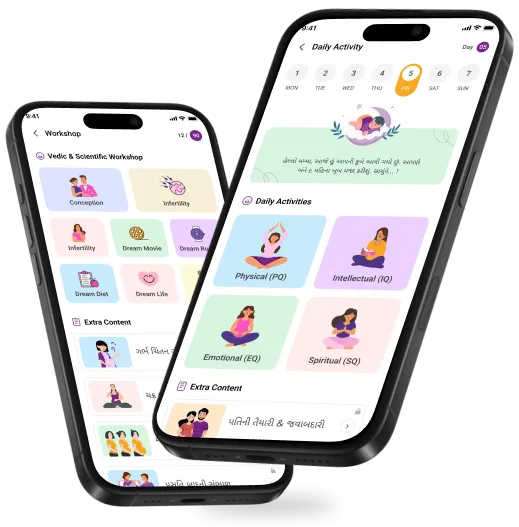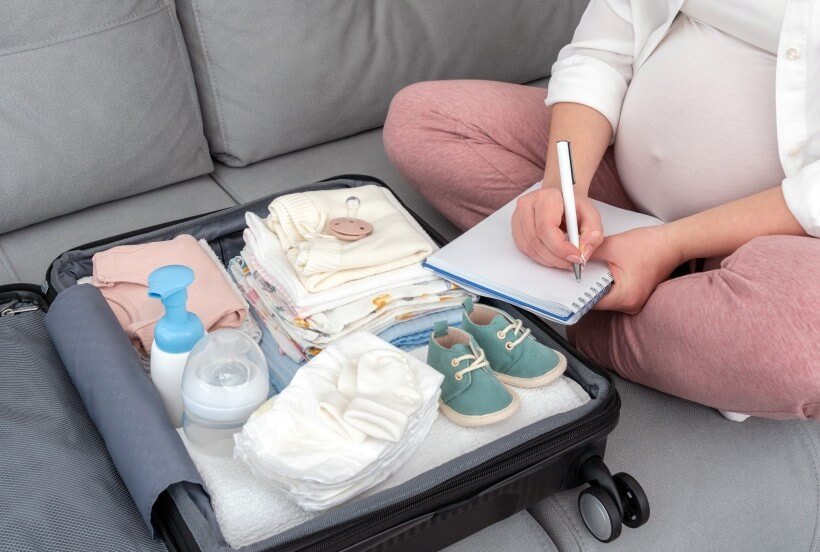Hey there, beautiful moms and mom-to-be!
Today, let’s explore the wonderful world of pregnancy. And let me tell you, it is filled with unexpected twists, turns, and a whole lot of love.
As you start on this beautiful journey of pregnancy, your body is undergoing so many changes to support your growing baby. One common change you might experience is Breast Pain. But fear not, we're here to provide you with all the information you need in simple language.
Imagine this: You're expecting a little bundle of joy, and suddenly, your breasts start to feel tender and sore. Is this normal? Let's dive into the world of pregnancy breast pain and find out!
Pregnancy is a magical journey filled with ups and downs, and one common problem in this journey is breast pain. Many expecting mothers experience this discomfort, but it is completely normal.
Many women complain of breast pain during pregnancy. After becoming pregnant, the level of estrogen and progesterone in the body increases which causes pain or swelling in the breasts. Changes are visible in your breasts also, breasts become more sensitive at this time.
What Causes Breast Pain During Pregnancy?
First things first, why does it happen? What are the causes of breast pain? During pregnancy, your body experiences an increase of hormones, including estrogen and progesterone, which are essential for your baby's development. Breast pain and hormonal imbalance are associated with each other. These hormonal changes can lead to increased blood flow and sensitivity in your breasts, causing them to feel tender, sore, or even swollen. Breast pain during pregnancy happens mainly because of hormonal changes.
When you get pregnant, your body starts making more estrogen and progesterone hormones. These hormones help your body get ready for the baby. As these hormones increase, your breasts might start feeling tender or sore. They might also get bigger and more sensitive. This usually happens around the fourth to sixth months of pregnancy. So, it's totally normal to have breast pain during this time because of all these changes happening inside your body.
As your breasts prepare for making milk for your baby, they might feel tender, sore, or even swollen. This can happen especially in the middle months of pregnancy. So, if your breasts hurt during pregnancy, it's usually because of these hormone changes, which are totally normal and just a part of getting ready for your baby.
Understanding Normal Breast Changes
Now, you might be wondering, ‘How do I know if what I'm experiencing is normal?’ Good question! While every woman's pregnancy journey is unique, there are some common signs that indicate it is completely normal. It's important to know that breast pain is a normal part of pregnancy for many women. Your breasts are gearing up for their superhero role in nourishing your baby with milk once they arrive. As they prepare for this important task, they may undergo various changes, including:
- Increased Size: Your breasts may become larger and feel heavier as they prepare for milk production.
- Tenderness: You might experience tenderness or soreness, especially around the nipples.
- Darkening of Nipples: Your nipples may darken in color as pregnancy progresses, which is entirely normal.
- Vein Visibility: You may notice more prominent veins on the surface of your breasts due to increased blood flow.
{{cool-component}}
When to Seek Help?
While breast pain is often a normal part of pregnancy, there are times when it's essential to seek medical advice. If you experience any of the following symptoms, it's important to consult with your healthcare provider:
- Severe or Persistent Pain: If your breast pain is severe or doesn't improve with breast pain remedies at home.
- Lumps or Changes in Texture: If you notice any lumps, bumps, or changes in the texture of your breasts.
- Nipple Discharge: If you experience any unusual discharge from your nipples, such as blood or pus.
- Redness or Heat: If your breasts become red, hot to the touch, or swollen, which could indicate an infection.
Tips for Managing Breast Pain

During pregnancy, your breasts may swell and become more sensitive. This swelling and sensitivity are most commonly experienced during the fourth to sixth months of pregnancy. While breast pain can be painful, there are several simple tips you can try to reduce discomfort and manage symptoms effectively. This are some breast pain treatments at home:
1. Hot and Cold Compress
Applying mild hot and cold packs to your breasts can provide relief from pain and swelling. Placing an ice pack on the affected area can help numb the pain and reduce swelling temporarily. Similarly, using a warm compress or taking a warm shower can improve blood circulation and reduce discomfort. Apply warm compresses to your breasts to help relax the muscles and reduce soreness. However, ensure that the temperature of the hot pack is not too high to avoid any adverse effects. It is the best option for managing breast pain naturally.
2. Hydration
Staying hydrated is essential during pregnancy and can also help reduce breast pain. Avoid excessive salt intake, as it can contribute to discomfort. Instead, drink plenty of water to stay hydrated and promote overall well-being. Adequate hydration can help reduce breast pain and provide relief from other symptoms.
3. Wear a Supportive Bra
Invest in a well-fitting, supportive bra to provide extra comfort and minimize breast movement. Investing in well-fitting bras is important during pregnancy, especially as your breasts undergo changes in size and shape. Opt for bras with wide straps that provide adequate support and minimize breast movement. Wearing properly fitting innerwear can help reduce discomfort and prevent further strain on your breasts.
4. Gentle Massage
Massaging your breasts with warm oil, such as olive, sesame, coconut, or essential oil, can help reduce nipple pain and discomfort. Practice gentle breast massage using circular motions to improve circulation. Massage the affected area gently several times a day to promote relaxation and improve blood flow. This can help reduce breast pain and enhance overall comfort during pregnancy. Lightly heat any olive, sesame, coconut, organic or essential oil and then massage the nipples and breasts with this oil. Massaging 3 to 4 times a day reduces nipple pain.
5. Regular Exercise
Engaging in regular exercise is beneficial for both your physical and mental well-being during pregnancy. Do at least 20 minutes of moderate breast pain relief exercise each day to improve blood circulation and reduce breast pain. Consult a certified yoga instructor to learn suitable yoga poses and exercises that are safe and effective during pregnancy. Avoid taking painkillers without medical supervision, and consult your healthcare provider if you experience severe breast pain.
{{cool-component}}
6. Communicate with Your Partner
Talk to your partner about what feels comfortable during intimate moments, as your breasts may be more sensitive. You may feel better.
7. Foods To Reduce Breast Pain
Eat plenty of fruits, vegetables, and whole grains for fiber and antioxidants. Include healthy fats from foods like nuts, seeds. Sprinkle flax seeds on your meals and enjoy soy products like tofu and soy milk. These simple dietary changes may help reduce breast pain during pregnancy.
8. Manage Stress
Additionally, managing stress levels is also important, as breast pain and stress often go hand in hand. Breast Pain in young women is common. Breast pain before the period is due to hormonal fluctuations. From hormonal fluctuations to lifestyle choices, breast pain supplements can provide relief from this common pregnancy discomfort.
Factors like breast pain and caffeine intake, vitamin deficiencies and breast pain, breast pain and exercise habits can all play a role in increasing or decreasing the symptoms. For mothers with breast pain during breastfeeding, seeking guidance on breast pain diagnosis and exploring breast pain relief products can offer much-needed support. While herbal remedies for breast pain can provide natural relief.
Conclusion

In conclusion, breast pain during pregnancy is a completely common problem that can be managed with simple lifestyle adjustments and self-care techniques. By staying hydrated, wearing appropriate innerwear, practicing gentle massage, and regular exercise, you can reduce discomfort and enjoy a more comfortable pregnancy journey. Remember to prioritize your health and well-being, and don't hesitate to seek medical advice if needed.
While it can be uncomfortable at times, rest assured that it's a sign that your body is doing its incredible work. Stay informed, stay connected, and above all, cherish this extraordinary time in your life! Remember to listen to your body, seek support as you prepare to welcome your little one into the world.
Disclaimer: This blog is correct as per the writer's knowledge. This is not medical guidance. Follow as you are responsible for.












.webp)

.webp)





